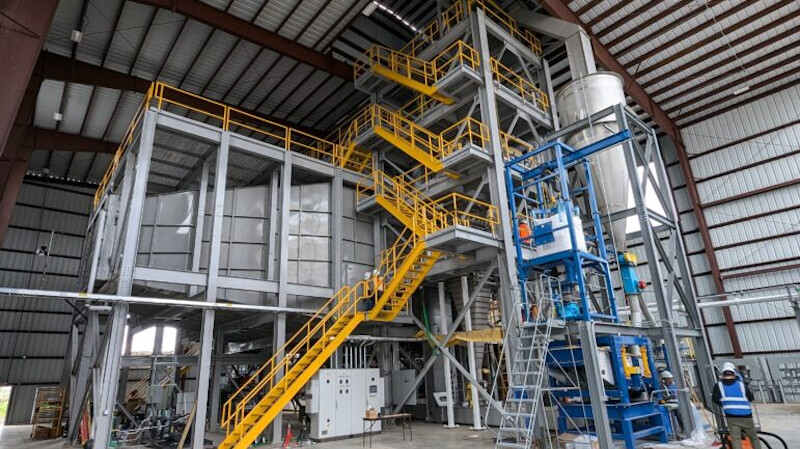
The US start-up 280 Earth has presented a new approach to reducing CO2 emissions and collected millions for it. Among other things, the company wants to make the data centers of Google and Facebook Group Meta more sustainable.
The need for data centers continues to increase. This is leading to an unprecedented demand for energy, which is also affecting the climate. The US start-up 280 Earth, which once belonged to Google parent company Alphabet, now wants to a solution for the problem have developed. Because training AI in particular uses more and more electricity.
As a result, data centers contribute significantly to Big Tech’s carbon emissions. However, with its technology, 280 Earth aims to reduce emissions through various methods. By filtering CO2 from the air, using waste heat from servers and producing water, data centers should be cooled more efficiently.
Big Tech’s CO2 emissions: Data centers should become more sustainable
The company uses modules with absorbent materials, called sorbents, to filter CO2 from the air. Unlike large direct air capture (DAC) plants, 280 Earth’s technology is said to be more efficient. Classic systems work with large quantities and high temperatures, while the start-up’s system continuously switches between two chambers.
This saves energy by avoiding energy loss due to repeated heating and cooling. Additionally, 280 Earth’s technology can harvest water from the surrounding humidity. This makes the approach attractive for customers who need both water and waste heat. In this way, two to four thousand liters of water can be obtained from one ton of CO2 absorbed.
The first pilot plant is expected to filter 61,600 tons of CO2 by 2030
Although the technology appears promising, there are concerns about cost, safety and the possibility of delaying the transition away from fossil fuels. Experts emphasize that carbon removal is not an alternative to avoiding greenhouse gas emissions. 280 Earth recently completed its pilot plant in Oregon, which is expected to capture 61,600 tons of CO2 by 2030.
Currently the cost is over UD$600 per tonne of CO2, showing how expensive it would be to capture more of the climate pollution. However, 280 Earth boss John Pimentel is confident that scaling carbon removal will reduce costs. He believes this technology can buy us time to transition to clean energy.
Also interesting:
- Genetically modified plants are supposed to filter carbon from the atmosphere
- Travel: These measures could reduce emissions the most
- Researchers develop battery with supercapacitors made from chicken fat
- With electromagnetic vehicles: company plans elevator into space
The post Google, Meta and Co: Start-up wants to reduce Big Tech’s CO2 emissions by Felix Baumann appeared first on BASIC thinking. Follow us too Facebook, Twitter and Instagram.
As a Tech Industry expert, I think it is commendable that start-ups are focusing on reducing Big Tech’s CO2 emissions. Companies like Google and Meta (formerly Facebook) have a significant environmental impact due to their massive data centers and operations.
It is crucial for these companies to take proactive steps to reduce their carbon footprint and mitigate the effects of climate change. Start-ups that are dedicated to developing innovative solutions to help reduce CO2 emissions in the tech industry play a crucial role in driving sustainability and environmental responsibility.
By working together with Big Tech companies like Google and Meta, these start-ups can help implement sustainable practices, improve energy efficiency, and ultimately reduce greenhouse gas emissions. This collaboration is essential in creating a more environmentally friendly tech industry and contributing to a greener future for all.
Credits